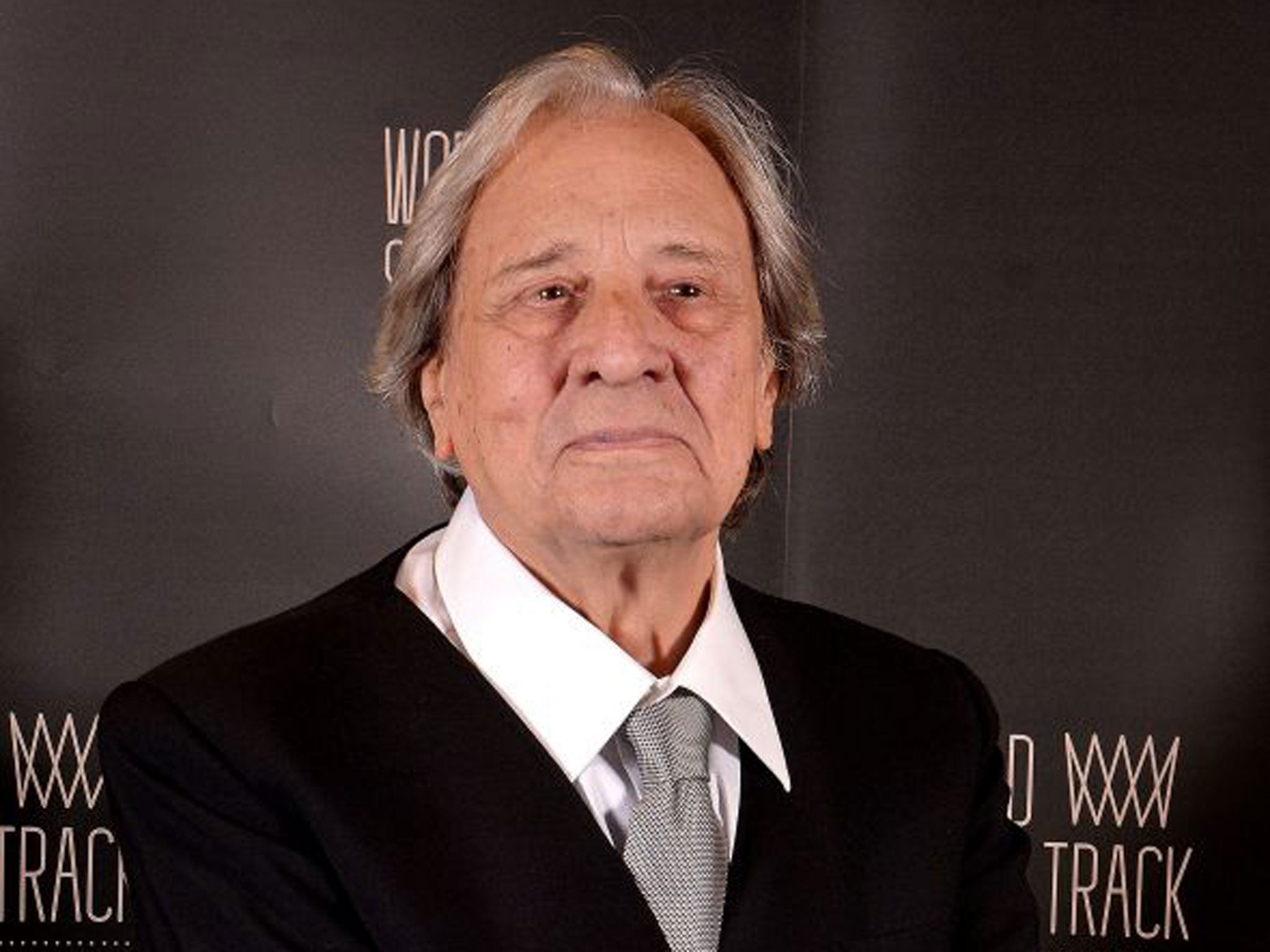Riz Ortolani: Composer who wrote for over 200 films and whose work was championed by Quentin Tarantino

The film composer Riz Ortolani might have only been half as prolific as his more illustrious fellow Italian, Ennio Morricone, but he still amassed over 200 scores for directors ranging from Vittorio De Sica, Dino Risi and Anthony Asquith to Tinto Brass and Quentin Tarantino. Most famously, with Nino Oliviero, he wrote and arranged the haunting theme for Mondo Cane, the 1962 shockumentary directed by Gualtiero Jacopetti, Paolo Cavara and Franco Prosperi.
Originating the mondo genre of shocking, pseudo-cinéma vérité and introducing the term "mondo" (the Italian noun for "world") into pop culture, Mondo Cane became a succès de scandale at the Cannes Film Festival in 1962 and an unlikely box-office draw in US drive-ins and grindhouse theatres.
Though at odds with the graphic travelogue footage, the beautiful melody won a Grammy for Best Instrumental Theme in 1963. It was turned into a popular song, "Ti Guardero Nel Cuore" by Marcello Ciorciolini. The British producer and songwriter Norman Newell subsequently penned an English lyric. Known as "More", the song was nominated for an Oscar as Best Original Song and became an MOR standard, recorded and performed by Vic Dana, Judy Garland, Frank Sinatra and the Supremes.
Ortolani's compositions had considerable mainstream appeal and cleverly contrasted with the disturbing subject matter of some of the films he soundtracked. While Ruggero Deodato's controversial 1980 film Cannibal Holocaust pioneered the use of "found footage" in a horror context, Ortolani's eerie score – and especially the inspired combination of acoustic guitar, strings and synthesiser he employed for the main theme – anticipated the French touch of acts like Air two decades later.
Tarantino was an aficionado and used the dynamic, twangy, guitar-led "I Giorni Dell'Ira" from Gunlaw (aka Day of Anger), the 1967 spaghetti western starring Lee Van Cleef, to great dramatic effect in Kill Bill: Vol. 1 and 2 and Django Unchained. He also used the honky-tonk piano instrumental "The Saloon" from Beyond the Law (1968, also starring Van Cleef) for a pivotal scene in Inglourious Basterds.
Ortolani was born into a musical family in Pesaro in 1926 and began learning the violin at the age of four, but switched to the flute after injuring his left elbow in a car crash. He studied at a conservatory in his home town. By the end of the Second World War he was principal flautist in his local orchestra.
In 1948 he moved to Rome, playing piano in a dance hall before joining the state broadcaster RAI as arranger for its orchestras. He formed a jazz ensemble influenced by Stan Kenton and moved to the US, where he had a spell leading the band at Ciro's on Sunset Boulevard.
After returning to Italy in 1961 he provided the jazzy score for Il Sorpasso – "The Easy Life". Work on Mondo Cane and the equally exploitative Women of the World followed, as did Horror Castle, featuring Christopher Lee, and the Barbara Steele vehicle Castle of Blood, both helmed by Antonio Margheriti.
"More" gave Ortolani an entrée into Hollywood. In 1964 he wrote the soundtrack for The 7th Dawn, Lewis Gilbert's Malaya-set drama starring William Holden, Capucine and Susannah York, and The Yellow Rolls-Royce, Anthony Asquith's lush pan-European picture featuring Rex Harrison, Jeanne Moreau, George C Scott, Shirley MacLaine and Ingrid Bergman as the consecutive owners of a luxury car. The latter included Ortolani's "Forget Domani"; sung by his wife, Katyna Ranieri, in the film, it was adapted by Newell and recorded by Connie Francis, Sinatra and Perry Como and grew into an easy listening staple.
Ortolani continued to compose memorable scores for Hollywood films like The Glory Guys (1965), the Sam Peckinpah-scripted western starring James Caan, and came up with a swinging London-like soundtrack for the British spoof The Spy with a Cold Nose (1966). He worked on Vittorio De Sica's Woman Times Seven, the Paris-set portmanteau starring MacLaine in seven adultery-themed vignettes, and the risqué medieval comedy The Chastity Belt, starring Tony Curtis and Monica Vitti (both 1967). The following year came The Battle for Anzio, the Second World War epic featuring Robert Mitchum, Peter Falk and Robert Ryan.
His jaunty title song for Buona Sera, Mrs Campbell is one of the many delightful features of the who's-the-father 1968 comedy starring Gina Lollobrigida, Telly Savalas and Phil Silvers. His melancholy score for Cosa Nostra – aka The Valachi Papers (1972) – matched the downbeat mood of the Terence Young-directed mafia exposé.
Tireless, passionate and innovative, Ortolani wrote a symphony, a ballet and a musical, and conducted. In 1982, with the Vienna Symphony Orchestra, he undertook a triumphant 15-date tour of Japan, where he had a big cult following. He had recently worked on Un Matrimonio, an Italian TV mini-series directed by Pupi Avati, for whom he had composed 25 soundtracks over 35 years. He died of complications from bronchitis.
PIERRE PERRONE
Riziero Ortolani, film composer, arranger, conductor: born Pesaro, Italy 25 March 1926; married 1956 Katyna Ranieri (one daughter, one stepson); died Rome 23 January 2014.
Join our commenting forum
Join thought-provoking conversations, follow other Independent readers and see their replies
Comments
Bookmark popover
Removed from bookmarks